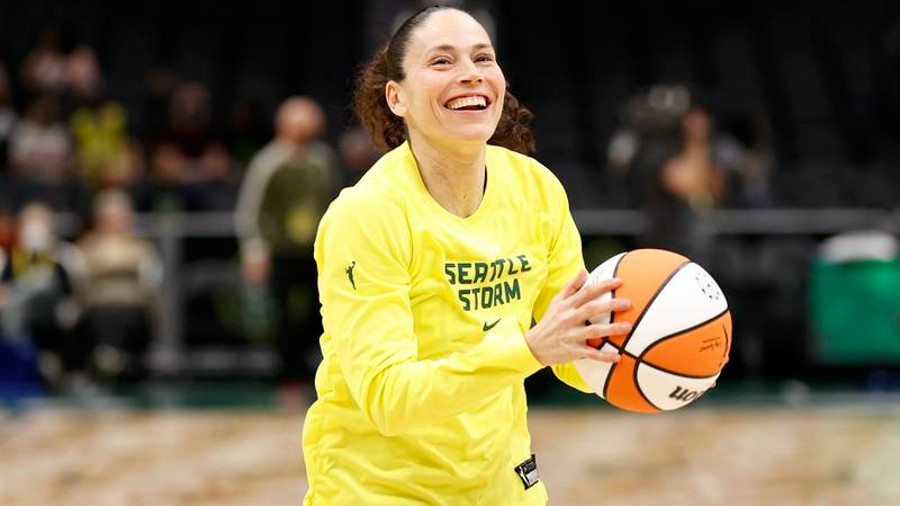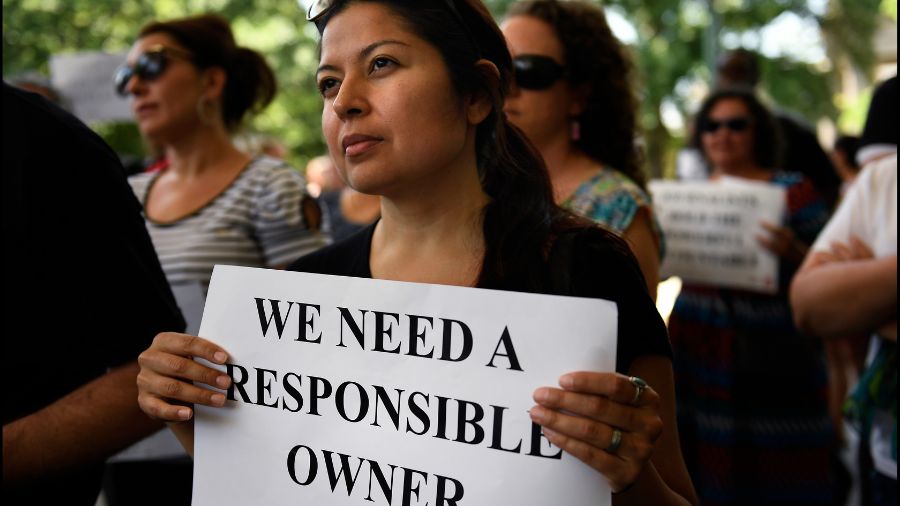Former Seattle mayor: Ed Murray’s crisis ‘very different’
Apr 12, 2017, 7:09 AM | Updated: 9:21 am

Seattle mayors of the 20th century who left office before their terms expired include, from upper left, Hiram C. Gill (1911); Ole Hanson (1919); Frank Edwards (1931); John F. Dore (1938); Arthur B. Langlie (1941); and Dorm Braman (1969). (Images courtesy Seattle Municipal Archives)
(Images courtesy Seattle Municipal Archives)
The news first reported by The Seattle Times last week that Mayor Ed Murray is the target of a civil lawsuit – and a flurry of subsequent public statements from both sides of the case – continue to reverberate all the way from City Hall to coffee shops, barrooms and kitchen tables in neighborhoods around Seattle.
RELATED: Plaintiff could request Murray undergo another exam
Seattle has elected mayors since 1869, and many have hit rough patches in their two and, later, four-year terms. Most who faced crises were able to complete their terms, and some even managed to get reelected.
Even in recent years, Ed Murray isn’t the only sitting mayor of the Emerald City who has found himself pledging to not resign.
After the WTO riots hit the city in late 1999, the Washington Council of Police and Sheriffs and the Washington State Troopers Association called publicly for Mayor Paul Schell to step down. Schell remained in office but lost his bid for a second term in the 2001 primary election.
In 1975, Mayor Wes Uhlman faced a formal recall effort, after angering employees of the Seattle Fire Department and Seattle City Light by implementing progressive hiring standards.
“It was pretty distracting,” Uhlman said earlier this week.
Uhlman was the first Seattle mayor elected under a new city charter that vested far more power in the executive branch than had ever been vested there before.
“Prior to that time, the mayor was just a figurehead,” Uhlman said, with budgetary responsibilities and the hiring and firing of department heads spread amongst city council members. Centralizing authority under a true executive mayor was a new thing, and it let Uhlman shake up the old order.
“City Light was like a club,” Uhlman said, with sons “inheriting” jobs from fathers and grandfathers.
Organizers of the recall effort – including many firefighters – succeeded in collecting enough signatures to force a recall election on July 2, 1975. But Uhlman had support from the business community and much of the public.
While he ultimately prevailed by a margin of 2-1, Uhlman says that the campaign leading up to the vote diverted his attention away from his job as mayor.
“I was focusing on the things that I believe in, which were all going to be jeopardized by the election,” Uhlman said. “And so I spent an inordinate amount of time on the election and the election process.”
RELATED: Family’s objections responsible for naming Gas Works Park
Asked about the current administration’s travails in light of the lawsuit against Mayor Murray, Wes Uhlman sees clear differences from what he faced, but also some parallels.
“Well, of course, Mayor Murray’s issues – his crisis – is very different from anything, I think, that ever happened in the city,” Uhlman said. “And it’s going to be very distracting for him, there’s no question about it, because his reputation is on the line, his ability to establish his priorities and to see them accomplished are on the line.”
“He’s got to get through this, and he’s going to be very distracted,” Uhlman said. “No question about it.”
Seattle mayors leave prematurely
A handful of Seattle mayors have actually left office in the wake of crises, and a few others have left office prematurely for other reasons – including positive ones, like bigger and better jobs.
Of the nearly 60 people who’ve held the office of mayor of Seattle since 1869, it turns out that roughly 15 percent have left office early. In most cases, the city council chose a successor to serve the remainder of the departed mayor’s term.
Since 1911, three mayors have resigned, two mayors have been recalled by voters, and one mayor died in office. Earlier, in the 19th century, three mayors left office prematurely. According to the City of Seattle Municipal Archives, Mayor Corliss P. Stone took office in July 1872, but “left the city before his term ended.” And, in 1896, Frank D. Black was mayor for a few weeks. He was replaced by W.D. Wood until Wood left town shortly thereafter for the Klondike Gold Rush.
Mayoral terms were two years in length until 1948 (when they became four years), and election dates and inauguration dates have moved around the calendar through various changes to the city charter over the years. While Republicans and Democrats battled for control of City Hall for the first several decades, the office of mayor has been officially non-partisan in Seattle since 1911.
Here, then, is a rundown of the six 20th century Seattle mayors who checked-out early from City Hall.
Mayor Hiram C. Gill: RECALLED February 8, 1911
Mayor Gill was elected in 1910 on a platform that included “opening” Seattle to businesses such as brothels and gambling parlors. But giving the people what they wanted backfired, and Gill was recalled via petition and then ballot in February 1911. George W. Dilling was elected mayor as part of the recall process then in place.
Clarence Bagley, in Volume II of his 1916 “History of Seattle,” wrote: “These petitions charged that Gill had permitted the city to become the home of criminals, that he had abused his appointive power and had failed to enforce the law, that he was incompetent, and that his administration was a menace to the city.”
Remarkably, Gill’s political career wasn’t over. He came back, changed his stance to oppose those kinds of shady businesses, and was elected mayor in 1914 and again 1916, serving two two-year terms. Gill was even mayor in 1917 when the Seattle Metropolitans became the first American hockey team to win the Stanley Cup.
Mayor Ole Hanson: RESIGNED August 28, 1919
Ole Hanson was elected mayor in March 1918. He was in office during the General Strike of February 1919, when most of the city was shut down by worker walkouts for several days. It was a tumultuous time. By March, Hanson had had enough, and he left town. He made his resignation official in August.
Hanson’s management of the city during the General Strike was praised by historian and judge Cornelius H. Hanford in his 1924 book, “Seattle and Environs,” who blames Hanson’s resignation on a lucrative speaking tour (this was years before “to spend more time with my family” came into vogue).
Hanford wrote: “[Hanson] was lauded as a man of iron nerve who confronted and conquered belligerent hosts, and distant newspapers nominated him for the high office of President of the United States. On invitations he made a trip to the East and addressed large audiences in New York and Boston, and he was engaged for a lecturing tour for compensation that induced him to resign the office of Mayor of Seattle.”
Ole Hanson went on to create the California seaside enclave of San Clemente, which, just a few years later, hosted the Seattle Rainiers for spring training, and which later was home to President Richard Nixon. The Ole Hanson Beach Club in San Clemente is named in honor of the former Seattle mayor.
Mayor Frank Edwards: RECALLED July 13, 1931
Mayor Edwards made the mistake of firing popular longtime City Light head J.D. Ross. Signatures were gathered, a recall election was held, and Edwards was out. City Council President Robert Harlin, who became acting mayor upon Edwards’ removal and who was then chosen by the city council to serve the rest of Edwards’ term, immediately rehired Ross.
“In my judgment the result of the election was a mandate from the people that they wanted Ross reinstated and the Board of Works completely reorganized,” Mayor Harlin told The Seattle Times.
Mayor John F. Dore: DIED IN OFFICE April 18, 1938
Mayor Dore served his first two-year term from 1932 to 1934. He lost in 1934, but then regained office in 1936. He was already ill when his bid for re-election failed in 1938, and he was a lame duck when he became Seattle’s first and only mayor to die in office (though, technically, the city council had relieved him of his duties five days before his death). Dore was 56 years old, and was reported to have suffered from “ptomaine poisoning.” The man who defeated Dore in 1938 – Arthur B. Langlie – was mayor-elect when Dore died, and thus was named mayor by the city council prior to what would’ve been his formal swearing in.
Mayor Arthur B. Langlie: RESIGNED to become Governor January 1941
Arthur B. Langlie won a pair of two-year terms as Seattle mayor, prevailing in the March 1938 and March 1940 elections. He also ran for governor in November 1940 and won – a rare victory by a Republican in Washington, especially in FDR’s Democratic landslide that year. Langlie’s resignation in January 1941 was a happy one; he was inaugurated as governor in Olympia a few days later.
His grandson, Arthur K. Langlie, says his grandfather’s success – he remains the only Seattle mayor to successfully run for statewide office – was because he was a political moderate.
“He was very well-liked on both sides because he was a pretty common-sense person,” Langlie said. “He wasn’t particularly far afield either direction, and he really sought good policy for the state.”
Arthur B. Langlie served a term as governor, and then failed in his bid for reelection in 1944. However, he ran again in 1948 and served two four-year terms.
“My grandfather was on the short-list for Eisenhower as vice president [in 1952], because they were quite close,” Langlie said. “In the end, [Eisenhower] took Nixon, which I think if that decision had been made differently, a lot of things might’ve been different.”
The younger Langlie, questioned about his own political aspirations, is somewhat cagey.
“Well, that question is posed on a regular basis . . . and that is not something that I would probably answer directly at this point,” Langlie said. “But it’s certainly something that I’ve considered over the years, and I think I would consider again.”
And, if and when Langlie does throw his hat into the ring, what about following his grandfather’s political path: first stop Seattle City Hall, second stop Olympia?
“I think the challenge of being a mayor here right now is a great one,” Langlie said. “I would love to take that task on, [but] frankly, I suspect that it would be a difficult race to win given the political climate in Seattle.”
Mayor Dorm Braman: RESIGNED to join Nixon Administration March 23, 1969
Mayor Dorm Braman was elected mayor in 1964. In early 1969, he was appointed by President Nixon to serve as Assistant Secretary of Urban Systems and Environment at the U.S. Department of Transportation and stepped down as mayor. Floyd Miller was appointed by the council to serve out the remainder of Braman’s term as Interim Mayor. Wes Uhlman won the general election that November, and became mayor on December 1, 1969. Uhlman served two terms as mayor, and then lost in the 1976 Democratic Gubernatorial Primary to Dixy Lee Ray.













